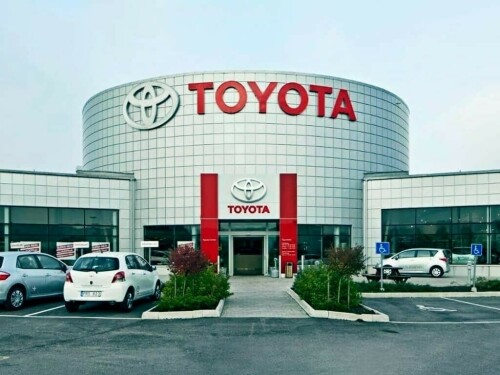Indus Motor Company’s Profit Surges by 75% in 9MFY25
Indus Motor Company (IMC) has revealed a substantial increase in its financial performance, reporting a profit-after-tax (PAT) of Rs16.55 billion for the initial nine months of the fiscal year 2024-25. This figure represents a notable 75% surge compared to the corresponding period last year.
The company communicated these details in an official notification to the Pakistan Stock Exchange (PSX) and in a separate press release issued on Monday.
In comparison, the PAT for the same period last year, 9MFY24, stood at Rs9.41 billion.
The earnings per share (EPS) also saw a significant rise, reaching Rs210.62, a considerable increase from Rs119.67 in the same period of the previous year. Furthermore, the company announced a third interim cash dividend of Rs50 per share, up from Rs34 per share in the prior year’s equivalent timeframe.
Sales Performance
According to the official statement, IMC showcased strong operational results during the nine months concluding on March 31, 2025. The total sales volume of both completely knocked down (CKD) and completely built units (CBU) experienced a 57% boost, climbing to 21,890 units from 13,922 units during the same period last year.
Driving Factors
“This upswing can be attributed to a resurgence in consumer demand, coupled with the sustained popularity of models such as the Corolla Cross and Toyota Yaris. These models have benefited from well-timed feature enhancements and model revisions,” the company stated.
The net sales revenue also reflected positive growth, increasing to Rs145.53 billion from Rs98.23 billion during the corresponding period of the prior year.
“This enhancement mirrors amplified sales volumes, consistent input costs supported by a relatively stable exchange rate, and efficient cost control strategies, including amplified localization efforts.”
CEO’s Remarks
Ali Asghar Jamali, CEO of IMC, commented, “Indus Motor Company has demonstrated robust performance in the initial nine months of FY24-25, driven by reduced interest rates, growing consumer trust, and consistent foreign exchange rates. This continuing pattern highlights the necessity for policy reassessment, particularly the streamlining of depreciation allowances on used car imports. This would ensure a fair environment for local manufacturers and enhance government revenue streams. IMC is dedicated to innovation, customer contentment, and aiding the enduring expansion of the nation’s automotive industry.”
He further noted that used car imports continue to constitute a substantial proportion (29%) of the domestic auto market in terms of value in the current fiscal year. It is worth mentioning that imports of used vehicles saw a modest rise of 6% during the stated period, totaling 29,590 units compared to 27,859 units in the same period last year.



Comments (0)
No comments yet. Be the first to comment!
Leave a Comment